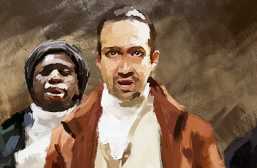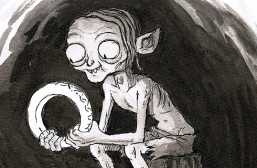Can you Teach Someone how to Become a Writer?
Joseph Finder, a famous American writer, claims in an online post titled Just Write the Damned Book Already: “Writing is the only profession I can think of that requires no license, no certificate, no special training, and no special tools.” Although this statement may seem absurd, for we know how difficult it is to make writing a profession, Finder is not disconnected from reality. What he means by this, is that because almost anyone can write, the publishing industry knows how to dodge amateurs who can only waster their time. Therefore, only the most stubborn, risk-taking fellows can survive. A majority of people can write a book, indeed, but writing a book does not mean being a writer.
Being a writer is a completely different story, and whether you can teach someone how to become a writer has long been debated by established writers, as well as aspiring ones. It seems like there is no simple answer to it; writing is neither black nor white, which is possibly one of the reasons why people find writers so impressing. This profession, indeed, is a truly, undeniably odd one.
But the answer is actually not that hard. You can teach someone how to become a writer, but only to a certain extent. There are certain conditions.
Types of Writers
What makes the question so fascinating, yet so difficult to answer, is that it contains many different elements, which we need to separate to discuss properly. There are for instance many types of writers, each of them having different work methods, different aims, and different audiences; there is also a number of different types of writing, each of them having different requirements, different rules, and different establishments. Altogether, along with the person’s personality and social environment, these factors are the most determinant on a writing career.
While it is impossible to say that all writers become so the same way, it is possible to say that you can teach someone how to become a writer. The reason is, every aspiring writer is differently gifted, and he or she can learn what is missing in order to succeed. There are two things, however, that one cannot learn to become a writer, and that is, how to learn and how to persevere. These must be inherent to the aspiring writer because there is no way to teach them, and because they are essential; for one, the writer needs to reach readers, and for two he needs to teach them something through story-telling.
On a broad perspective, therefore, becoming a writer is a long process that involves both learning and having natural talent.

Writing Genres
There is a fair number of literary genres for writers to play with, and choosing one—or many—has a considerable impact on what the writer needs to have as a natural talent or to learn.
Fiction and non-fiction, for instance, are probably the two genres that contrast the most; while the first requires, most prominently, creativity and efficiency, the latter involves, most importantly, critical thinking and clarity. From a dualist perspective, therefore, the fiction writer is more of an artist, whereas the non-fiction writer is closer to the intellectual type—of course, nothing says you cannot be both. Starting from the idea that anyone can be a writer, the question is: what does the aspiring writer need to learn? As we know, all people have different backgrounds and intellectual gifts—Howard Gardner lists nine of them. This is the basic toolkit to any aspiring writer, and in the eventuality one encounters success, it will become one’s trademark. Among these tools are the ease with writing, the knowledge, the personality as well as the understanding of life, just to name a few.
The two following hypothetical examples illustrate how one ability can complement another ability. Lucas is a fiction writer living in Los Angeles, and Corine a non-fiction writer based in Ottawa. Although their style and content broadly differ, they have a major common point: they both are successful writers because they were able to perceive what were their natural strengths, and what they needed to learn—in relationship to the genre they aimed.

The Fiction Writer
Lucas is the author of many New York Times best-sellers; he mostly writes psychological thrillers set around the Californian musical scene. When he was young, he got to travel a lot during summers with his dad, who was a touring musician. He learned about how the industry functions and how people who shape it interact with one another. As his mom was a variety show TV host, he inherited from her funny, charming personality. When he realized he was good at telling his Dad’s touring stories to his friends, in High School, he decided to write some of them. Then he made them read by his composition teacher. Lucas, the latter thought, had an interesting way of writing and developing ideas; however, he could not organize his thoughts clearly and made many grammar mistakes. He told him they could work to improve these things, so together they went over Lucas’ writing. The aspiring writer would then keep practicing and working to strengthen his style. When the time came to approach publishers it was a rather easy job; Lucas was knew from his parents how to market himself in a creative market. Indeed, his interpersonal intelligence served him well for that matter; in College, as he studied creative writing, he was highly appreciated by his peers, which allowed him to make many useful contacts among teachers, students and other professionals from the industry.
Today, people from all around the world read Lucas’s novels, and many of them are not familiar with the music industry. In fact, the writer uses his linguistic intelligence to describe the universe he best knows and to make it accessible to everyone. Lucas has a very special way to make his readers feel involved in the stories he tells because he plays around themes and situations with which people can relate. Also, that he exposes the hidden, evil sides of the musical industry makes his writing not only entertaining but also educative. Lucas’s readers, generally speaking, like how universal his stories are —plot-wise and character-wise—although the centers them around a very specific universe.

The Political Analyst
Corine is a journalist, essayist, and political commentator—one of the most prominent Canadian political writers. Born from working-class parents, in a small town, she was passionate about improving people’s lives when she was a kid. Thus she chose to study Political Science at Carleton University, Ottawa, aiming to become a politician. However, Corine realized during her undergraduate degree that it is not what she was meant to be. She did not have an outgoing personality, and she felt like she could never really fit the political scene and all the compromises attached to it. However, as she loved academic writing and was rather good at it, she decided to become a political analyst. Because of her intra-personal intelligence, she had lots of self-confidence and a strong writing voice, which would help her succeeding in her field. Her clear and concise prose, along with her critical sense and analytical mind, led her to write compelling papers. To go further, though, she had to learn from other people; for instance, she sought help to gain networking skills and attended a workshop on how to present her papers in colloquia. A friend also taught her how to benefit from social media and how to create a personal blog. After her undergraduate studies, Corine pursued to the graduate level to gain more specific knowledge about political science.
Corine is now one of the most renown political analysts in Ottawa. She writes papers for two prestigious newspapers, publishes a few books every year and maintains a personal blog. She is also invited, on a regular basis, to join in academic projects in various universities across Canada. She is known for criticizing the political system with a calm yet appealing writing style. With her existential intelligence, she gathers her working-class background and her education to understand the wheels of the political system from different angles. Corine’s simplicity and humility make her a writer to which it is easy to relate.

At the end of the day, Lucas and Corine both became celebrated writers because, despite their natural talent, they were not afraid to learn. They persevered and used wisely the resources available to them to finally succeed. Putting their ego aside and investing a good deal of time did pay out. What we should remember, nevertheless, is that Lucas and Corine are just like anyone else; they were born with strengths and weaknesses. There are only two things you cannot teach an aspiring writer: the positive attitude and the capacity to learn effectively. With this natural talent, which in fact is usually the result of a favorable social environment, one can then work to fill the gaps; that is to say, one can find a good work ethic, improve one’s writing and content, and market oneself.
What is natural and what requires hard work broadly differs from a person to another. This is basically why one would be predisposed to a certain type of writing more than another. Fiction and non-fiction, indeed, are two completely different worlds that have different requirements. While one’s ease may point out to one of them, it does not preclude taking a different path. If success is to happen, it will happen no matter what; it only requires the writer to adapt to his or her aims.
That is the beauty of being a writer—learning from everyone, everywhere, and giving it back to the people.
Works Cited
Finder, Joseph. “Just Write the Damned Book Already” The Official Site of Joseph Finder, 2009. http://www.josephfinder.com/writers/tips/just-write-the-damned-book-already/
What do you think? Leave a comment.











Teaching someone how to become a writer is not a good idea, teaching someone how to let fears go and work in his or her talent, that is the thing. I remember when I first started in 2009 I wanted all people to become a writer specially women in Ciudad Juarez. I taught them organic writing and we had amazing results, we knew that together we can do more.
This is an excellent tip. So much of writing is having the confidence to pursue a story. Building blocks for successful writing can be learned, but if you don’t start, you have no story. On point.
I would venture to say that if you want to be a novelist, you’re probably better off reading and writing as much fiction as you can in your spare time and studying literature if you think it’s relevant to what you want to write.
The brilliant American short-story writer Robin Black who also teaches creative writing says that she feels the purpose of teaching creative writing is not to teach people how to write but to enable them to realise why they want to write – she phrases it much better than that, of course!
Coincidentally, I’m currently reading Benjamin Franklin’s autobiography. He’s quite crystal clear about how he taught himself good technique.
1. Arguing rhetorically with a schoolfriend, he learnt lessons about the usefulness of understatement and never sounding too sure of yourself.
2. Being in the right environment. He was apprenticed to his brother, a printer and fledglng newspaper publisher.
3. Deliberately assimilating models. He mentions in passing John Bunyan as a definite influence, for example. But the real meat of his autodidaction was quite simple. somebody gave him an old copy of the spectator, then a very new publication.
First he summarised all the stories.
Then he put them into verse.
Then he put them to one side so that he would forget the details.
Then he came back and rewrote them in the clearest, most persuasive manner he could, without looking at the originals.
Then he compared his efforts with the original and tried to be honest with himslf about how he measured up.
Sounds quite effectve to me.
Who taught Shakespeare, Tolstoy, Tolkien? No-one.
Shakespeare studied classics at King’s New School, Tolkien studied English Language and Literature at Oxford and although Tolstoy never studied literature in a higher education setting he came from a very wealthy family and had access to a very high standard of education. If you are trying to suggest that education has nothing to do with a writer’s ability then I’m sure if you look hard enough you’ll find a writer who has had none, but that writer will be in a very small minority.
Artists go to art school to study.
Actors go to drama school to study.
Musicians go to music school to study music.
It’s always been a myth that you cannot teach someone to be a writer. That you have to sit in a garret and wait for the muse to appear.
Artists/Musicians/Actors/ study their subject because they have a passion for it, writers should be no different. Whether you learn by teaching yourself locked in a room or by attending a writing course, you still need to learn so you can develop and improve to be the best writer you can be.
I agree
I agree also. Sometimes there is this notion amongst artistic types that it is a triumph to be “a natural” or self-taught (with the implication of being unaffected). This is a pitfall. Even the most proficient writers can benefit from being taught their craft. The more important things are to maintain your voice and unique point of view, and to actively practice writing within your studies.
I have had this same thought on my mind for quite some time. Many of my friends have asked me to teach them how to write, but my answer is a simple one.
“I cannot teach you what must be felt.”
You can be taught regulations, writing styles, ins and outs, but when it comes down to it, writing is all about the emotion, the singular unique ideas, and the personal experience.
You can teach writing, painting and musical techniques, and pretty much everything else a creative writer, painter or composer will need to make full use of his talents.
And, it turns out that you don’t have to be an artistic genius before learning this stuff is of use to you.
The biggest enemy of the writer is procrastination. a course would be good for both forcing yourself to write (deadlines, while at first sight an enemy, are clearly a writer’s best friend for actually getting the bloody thing written), and for getting constructive feedback on what you write (as opposed to the “everything you write is amazing – oh my god, you’re so clever” from all friends and family, which is what they should be doing, but is no help except for morale). if there’s any kind of shortcut to getting your stuff read by people who matter in the publishing world too, as would appear to be the case, then that’s three excellent reasons to do a course, without even getting on to the main topic argued here, which is whether it improves your writing.
I strongly believe that MA writing courses allow writers to broaden the scope of their art – in much the same way that an art student might benefit from exposure to other mediums.
Some people like courses, others do not. It is snooty to turn your nose up at what works for someone else.
Whether or not you can teach creative writing, I think there is something to be said about creating a space where you are allowed and encouraged to write, where you can share your work with others. Of course this is possible without going to university to do it, but I think there must be something positive in being allowed to devote your day to writing. When I took a writing module at University, I found it really liberating to have to write something everyday – it got me into good habits. As a lit student, it gave me a huge appreciation of how difficult it actually is to create good writing.
If there’s a ‘magic formula’ for being a writer, it’s to be widely read with some offbeat life experience on which to draw.
A literature degree isn’t essential but will fast-track you to the reading, unless you’re the type who’ll investigate outside your own preferences without guidance. A creative writing degree will only delay you getting the other.
This thought can apply to almost any art form- not just writing.
You can advance upon your skills as a writer at school, but if there are no creative juices indigenous to your mind in the first place, can you truly be a great writer? It is the natural talent, the eye for detail, the introspect of mankind that allows you to write detailed stories; Anyone can write, but this is what separates the good writers from the great.
First, you can go to college and take creative writing. You can then decide to go for a masters. There is much to learn and a body of peers for workshop guidance.
Second, to assume fiction is solely creative and non-fiction is intelligence lacking creativity is dead wrong. I direct you to the work of Pinckney Benedict and his short shories. He is a literary fiction writer. His stories contain layers of depth and nuance. He achieves this with a fluidity and grace that is, in my opinion, astounding. I suggest his book “Miricle Boy and Other Stories” specifically the story “In the beginnings of Sorrow.”
As far as non-fiction not being creative, checkout the lit mag “Creative Nonfiction Magazine.” I think you will be pleasantly surprised.
I’m currently an English-communication major, and deciding whether to take fiction or non-fiction courses is definitely a tough decision. I’ve taken various English courses over the past few years as an undergraduate student, but one thing I can agree on is that there is no ‘specific way’ to learn to write. Everyone has their own personal style of writing, and each individual person also learns writing techniques differently. For some it is second nature, and for others, it may be more difficult.
I love that anyone can be a writer. You don’t need a certificate or award to prove that a writer is good at what they do. A person can be an excellent writer without taking one university or college-level class. It’s incredible.
I think it’s vital to understand how writing isn’t one technique and how writers aren’t bred the same way or have taken the same courses at school. Those with that perspective, I think of as ignorant. I agree! I love how writing doesn’t mean you need a degree for it! I think it’s incredible how writing can be something so different, and in that regard so special, for each writer.
I think writing is so freeing in the sense that it is not a classroom grade. It’s so much more.
The writing of someone is their very nature. To force a genre out of someone is only going to end in poor taste for one, if not many, of the parties involved. Everyone has the spark to be a writer, and everyone has an audience that they can cater to. The problem isn’t being able to teach someone how to write, but teaching them to understand their tastes, style, and passionate audience.
You make some good points. I know from experience that many aspects of writing can’t be taught. In fact, probably one of the most important qualities for an author to have is the drive to continue writing even when they get discouraged or don’t feel like it. In many ways, that quality is one that can’t be taught, but there are also techniques, styles and structures that can be taught to better an author’s skills. The more I think of it, the more I’m realizing it’s a bit of both. There are some authors who simply have the natural talent to tell a story brilliantly, but others have drive unlike any other.
I believe you have to be born with a certain level of talent to articulate meaning in order to be a writer. Yes some stuff can be taught but the raw base of what it takes is not something that’s taught.
This is the rhetorician in me speaking, but I am curious, what do we mean if we do make the claim that “writing” cannot be taught? By writing, do we mean composition, i.e. format, paragraph structure, citations, grammar etc.? Because that can be taught. By writing, do we mean rhetoric, e.g. audience awareness and argument development? Because rhetoric can be taught also. I’m curious if when the claim is made that we can’t teach writing, it really is a claim based around creativity, perseverance, time management or some other factor. I don’t necessarily think that a person cannot be “taught” to be a writer, but I do think that the skills needed to be a professional writer may not necessarily be learned within a writing classroom.
“There are two things, however, that one cannot learn to become a writer, and that is, how to learn and how to persevere. These must be inherent to the aspiring writer because there is no way to teach them…”
Due to circumstance persevering on my part has been the hardest thing to do. I stop, not going past where I think it counts. With anything but especially with writing and anything related to storytelling.
I know how to write but not always how to start depending on the genre.
I find this statement to be the one I’m pondering the most
I just want to elaborate
I think one could learn to persevere. I mean one must be willing to learn
I don’t think you can teach will
Because everyone learns differently everyone can or can’t learn
This was encouraging to read for me as an aspiring writer. Currently, I have nothing published, but am learning so much at the university I attend. I’m also an editor on the journal at my university and fell in love with that process (despite how stressful it can get). Currently, I am learning the art of poetry. I won’t lie. I’m a rather terrible poet. Then again, I’m my own worst critic. However, in spite of my weaknesses, I’m willing to learn and persevere and in return, fall even more in love with writing and reading. I knew what I wanted to be when I was fourteen and now here I am, learning more and more about this craft. There is a strong presence at my campus of writers and artists which encourages all of us. I think, in order to be a writer, one must have the drive, passion, and willingness to take criticism and learn in order to improve.
Read, read, read, read and don’t stop reading and taking notes. Write, write, write and do NOT be afraid to rip up entire bits, perhaps the whole thing, again and again and again until you know it’s good. (If you have followed the instruction of that first sentence, you will know.)
The hard bones of writing can be taught. I have been on a couple of courses and they taught me things like: point of view shifts, which tense to use and why it sounds right, how to use dialogue effectively, how to edit work etc.
There are many people out there who write well, but editing, polishing and self critique is the difficult part of the creative writing process. That part can be taught.
I think you can teach someone how to write as far as grammar and structure go, but I don’t think it’s possible to teach someone to generate the ideas needed to make an interesting piece.
Learn. Learn. Learn.
This concept is novel and compelling, and I’d go so far as to support the idea that a person can be taught to write- to an extant, as mentioned in the beginning of the article. I believe the struggle is not in teaching someone to write, since writing can be as simple as a creative string of words formed in a coherent progression of thought. The challenge is in teaching someone to communicate artfully, and to do so in a way that the reader actually cares enough to read to the end of the page. The most elementary purpose of language is to convey and comprehend ideas, beyond that we form varying levels of art within language. Writing is a tool to create such art. This art doesn’t need to be whimsical and wild, or filled with lofty ideas and abstract metaphors. It is often analytical and scientific, sometimes peculiar and simple. When an author composes the language masterfully, he or she force writing to transcend communication, and enter the realms of art. So yes, I say you can teach anyone to write, but for someone to have the ability to write in such a way that the reader actually cares about what has been written; that requires an intrinsic talent that you either have, or you do not. Perhaps you can acquire tis natural affinity on your own, but it cannot be taught; only learned. There is no doubt that you can fake it until you make it; but it is unlikely you will ever make it, if you do not possess “it.”
I agree with the points in your article. I just wish Lucas and Corrine were well-known authors, or at least they were more explicitly recognized as authors.
I liked the point that there are as many different kind of writers as there are different kinds of people. You just have to persevere and make time to write. That’s the tough part for me. There are so many other things to do that don’t sap as much of my strength …
I think it’s more along the lines of practice practice practice.
Technique can be taught, but talent and imagination can’t.
My advice is get a shitty low paid job (good for essential emotional pain, the shittier the better), allocate yourself several hours of (ahem) admin time then write that ground breaking novel, drink heavily, keep writing.
What I have always heard to become a better writer is to read lots! I was able to interview an author and that is the advice she gave me.
This is a good attempt at answering one of those questions that cannot be answered. I am a creative writer (poetry), but have also taught academic writing to undergraduates, as well as worked in a writing center. Can you teach writing? I’m not sure what that means anymore, frankly. Yes and no. Writing contains an ambiguity many are not comfortable with. It’s a “yes” and “no” at the same time. Grammar and so-called “rules” only help to allay the fears of those attempting to write. As writing consultant in an Institute of Technology, we didn’t “teach.” We asked questions and tried students to see their OWN writing, and what they were saying. What are you SAYING? At the same time, we did give rudiments. Why? Because you have to meet people where they are at. Engineers used to systems and logical proofs are coming from a completely different language-set. They, at first, need something to grasp on to. If a writer was at a certain stage, though, I tried to slip this in: there is no “right” way to write. Writing, unlike a proof, perhaps, is a series of choices. One word *may* be synonymous with another, but not really. Rhythm, music, tone – these ethereal discussions maybe are left for later. I’ve often heard students say, “Well: you know what I mean.” I don’t say this, but I think, “Well: no. I don’t. Because you haven’t said it.” But the teacher’s job isn’t to “make” good writers. It’s to encourage, engage, empower, and hopefully, display a passion for the written language otherwise perceived as dead, useless, and taken for granted.
My own 2¢: budding writers need a mix of talent and hard work. One can be taught the rules of writing (e.g. grammar, how to develop a convincing plot). But how do you teach a writer to develop creativity?
Also, to the question of writing as a career: I’ve met many people who think that any person can become a writer because there aren’t required degrees/licenses.
Great post! I’ve learned that in addition to fiction and non-fiction is the middle ground of creative non-fiction: the memoir/self-help/poetry prose that allows the writer to be both creative and intellectual at the same time. The test Is the balance between the two. If you can captivate a reader with prose, I would say that you’re job as a writer is done.
An interesting essay. I take from this that the answer to the initial question is yes. I hope this correct. I noticed that, in the beginning, you mentioned that becoming a writer required both natural talent and what is learned. You later, however, did a sort of double-take and asserted that how you use your natural talent is learned. It is true that everyone has natural strength and weaknesses, and I agree that anyone can learn to play to their strength. What do you think of weaknesses though? Perhaps a large (maybe even larger) part of becoming a writer is about learning to cope with what you cannot do.
What you said is pretty accurate to what I meant when writing the essay. I definitely think the answer is “yes,” but you cannot teach everything. If you don’t have the two little things needed two succeed, no amount of work and learning will ever make you a great writer. What I think about weaknesses, however, is that they can be overcome as long as you have the two necessary things I mentioned in the essay.
I found this article to be interesting. It displays not only examples of types of writing but describes those types in detail so the reader can understand the point being made. My favorite quote in the article is “That is the beauty of being a writer—learning from everyone, everywhere, and giving it back to the people.” Writing is a form of art. With each word written a form of information through the creativity and imagination of the writer is displayed. One can only hope that the reader views the work and can take from it a sense of purpose that can be applied somewhere in their own quest for information or with a sense of feeling of satisfaction.
I found this article to be an interesting piece. I agree that writing has a lot of freedom and in a sense could be artistic. It’s true you don’t have to write a book in order to be considered a writer, but I still feel there are some guidelines you have to follow. That would explain why before books, scripts, etc. can become published they have to go through an editing process, just like with any other type of art.
I teach academic writing at a public university, and I ask myself this question every day. I have to believe writing can be taught for my livelihood, but I try to teach it indirectly. Many people believe that writing is simply grammar, but that’s like saying that filmmaking is only lighting. I try to teach my student that clear writing comes from clear thinking, and clear thinking comes from active reading. Especially given today’s information-saturation, I see it as my biggest responsibility to teach students how to evaluate sources, to tune it to what’s reliable and to critique what is unreliable.
Thanks for writing this! I used to be a great creative writer, but I lost momentum when I got to high school and had to start writing about things that I wasn’t interested in. I’m trying to get back into writing about my interests, and I’m glad I came across this article to help me push myself back into it.
I highly recommend taking writing classes at Second City. Not only do they have great writing teachers, but it’s a great way to meet and collaborate with other aspiring writers!
Very fascinating article!
I like the idea of this whole article. I’m an aspiring writer myself, and I guess the focus right now is to develop my fundamental writing skills. One of my weaknesses is writing for an audience instead of myself, but I agree that writing can only be learned to a certain extent. I found it helpful when I took writing courses in college, especially my creative writing course, but I disagree when you say that a writer is reliant on natural talent. You wrote yourself that Lucas wasn’t good at organization or grammar, but he was good at story. I think that instead a writer reliant on personal experience rather than natural talent. Talent can be acquired.
Don’t worry, you’re not alone. I wrote this article as a mean of reflecting upon my own journey in becoming a writer, and also upon my creative process. Audience is challenging for me too, and that is one of the aspect I am focusing on right now.
If there is one type of course I would suggest taking in College, that would be a “Creative Process” class. I am taking one right now at Concordia University, Montreal, and this is helping a lot.
I definitely think only certain people can actually become writers. It takes a lot of dedication and perseverance–not to mention talent–to actually get your voice heard and be recognized in today’s writing market. It is a great process and the faint hearted will not make it.
You can teach the basics of writing: the techniques, the forms, the basics. But you can’t teach the thing that makes those forms and techniques become special for each writer and that is the individual voice. A writer’s voice is learned through the practice of writing, not through a class. Someone can have the worlds greatest theoretical knowledge of the writing craft but not be a “real” writer or a “good” writer because they haven’t put it into action. The greatest teacher to the writer is the page itself.
At least in my humble opinion.
Is it something you can teach? Everything is.
Very cool article. Seeing the different paths that two successful writers traversed was very interesting. I completely agree that natural talent allows someone the potential to be a successful writer, and learning about writing is what hones their skills and makes them an actual writer.
I studied Creative Writing as part of my undergraduate degree. It hasn’t helped me become a best-seller, but it helped cultivate a passion and allowed a forum in which to share and workshop that passion. It’s not for everyone, but is definitely a worthwhile thing for some.
I love the ideas in this piece. The last sentence especially exemplifies everything it means to be a writer.
Writing, the action, is the detail of being a writer. In which case, anyone can be. Though I have read somewhere before that only 1/10 of America knows proper English. I will admit a lot of schools are behind and do not teach students proper grammar, structure, and punctuation. In general, a majority of people struggle with it, but no one likes being corrected. Everyone has their own forte. While I am good at writing, others are good at math or even science. Also, a lot of teachers tend to give a free pass to people who have English as a second language, instead of doing what they’re paid to do.
My goal one day is to be able to write beyond just journal entries in Japanese. Keeping a journal in Japanese helps me develop my Japanese more proficiently. Though I think writing in any kind can help a person hone a language. No matter what the case, I feel like the term “writer” will mean something else to each person.
The article brings up really interesting ideas and explores them very much in depth. Interesting to discuss the different genres. I’ve always thought that you can teach someone to be a good writer with language and grammar and more form things like that. In terms of fiction however, as the author says it’s way more difficult. You can’t really teach someone to be more creative. But I definitely think that reading other peoples work and taking classes with other students, exploring authors, etc can help build a strong foundation for inspiration. I think you can inspire creativity but that you can’t teach it. In writing as with all things we learn from experience.
Really fascinating read! Brings up a lot of relevant and interesting topics/points.
I think you’re right that we can’t directly teach creativity. What we certainly can do through teaching, though, is foster creativity by demonstrating the rewards in branching out, in doing something a little differently to see how it turns out, and in learning from the results, whatever they are. All of us have creativity in us. It may look very different from person to person, but we all have it.
I want to comment on your observation about two traits that you see as inherent and thus unteachable: “There are two things, however, that one cannot learn to become a writer, and that is, how to learn and how to persevere. These must be inherent to the aspiring writer because there is no way to teach them…”
I’m not sure that these two characteristics — how to learn and how to persevere — actually are unteachable.”How to perservere” seems to me to be pretty much synonymous with being resilient, and there’s mounting evidence that we can do a lot to improve our resilience.
http://www.newyorker.com/science/maria-konnikova/the-secret-formula-for-resilience
http://www.apa.org/helpcenter/road-resilience.aspx
As an aspiring writer myself I found this article extremely interesting and it has given me a lot to think about as I try to define myself as a writer and decide what kind of writer I want to be.
I think the reason we struggle with this question is because so many of us view writing as an art form. If we view it as a skill, it’s easier to say whether we can teach it or not. The answer for me is a resounding “yes”, but I’m a writing teacher, so I’m biased. Also, the author separates fiction and non-fiction and categorizes one as artistry and the other as critical thinking, but I believe each requires both. I don’t think there is any less artistry in crafting non-fiction or any less critical thinking in crafting something completely made-up. I think writing can be taught if the approach is to guide a student toward having the desired effect on their readers, whatever that may be. Often writing programs will wrangle a genre writer into writing literary fiction on the basis of creating “fine art”. That’s not turning out writers, that’s turning out puppets. I also disagree that writing a book doesn’t necessarily make you a writer. Sure it does, just maybe not a good one.
At the small liberal arts school I attend, only a handful of students really know how to write, whether for an in depth research paper or a piece of fiction. Writing is a skill that should be learned throughout elementary, middle, and high school. No one should be learning grammar in higher education. Higher education writing courses should be focused on finding your voice, whether in poetry, nonfiction, or journalism, and experimenting with various styles and ideas.
If you want to be taught how to write, you should probably have some vested interest in writing. If you do not, you will not take the lessons to heart. If someone has a genuine interest in writing they can be taught and they can take those lessons and mold them in a way that will help them go far in their careers.
Well said. Like any art, writing can be taught through continuous practice and revision.
Writing is a major hobby of mine and I found this very interesting.
Interesting topic. If someone writes a book why are they not consider a writer? Or are they only considered a writer if his or her book is successful? Or only if they are well known. Writing is an intimate profession that takes a lot of thinking and time. Reading books inspire people to do many things. One of them could be to begin writing your own story. Books can inspire many different situations in people’s lives and that is the gift of giving. And also the gift of learning about different things comes from reading what other people write. For those that enjoy writing, write yourself away no matter what. In the eyes of your pen, pencil etc. you’re the writer.
Everyone is their own unique writer in my belief. Just as no two people are alike no two writers are alike regardless of what they are writing about. This can become a very deep and debatable topic. When it comes to teaching someone to write that can become difficult. Giving techniques and tips to improve writing is possible but the actual task of teaching someone may construe one’s ability to express and make their writing their own.
I have to disagree with you on the way you make the distinction between fiction and non fiction. What is creativity, after all, if not the act of making connections and if that is the case, how can anyone claim that analytical and nonfiction writing is not creative? I have also read incredibly calculated and intellectual fiction in the past. Fiction and non fiction can be intellectual, creative or both.
The main question of the article, I think, will always be a very relevant one. I had a martial arts teacher who used to say you can’t teach anyone how to be a good fighter. Like you said, everyone is different and what applies to the teacher may not apply to the student. The only way you can teach anyone any skill is by providing them with opportunity to learn and develop it for themselves. A good writing teacher, I think is one that guides through effective prompts, encourages you to read and write as much as you can and be critical about your own and other’s work (in a constructive way of course).
Writing is a skill, and like all skills it can definitely be taught. What can’t be taught is the creativity. The best writers, no matter the genre or type of writing, are the most creative in their specialty. That creativity is what separates bestsellers from the rest. Though you can’t, in my opinion, teach creativity, you can certainly teach how to appreciate it and what makes something creative.
You can teach someone how to “write” well. That is, you can teach someone how to recognize conventions of good grammar, how to write a “good” sentence, and so on. But you cannot teach someone a style, it is something they have to find for themselves. Trying to “learn” a style is something that will only damage the quality of your writing. Instead, it is often best to just write until you find a voice that is particularly comfortable for you to write in.
Writing in my opinion can only be learned one way: obsession. I believe you can watch something over and over again and not know how to replicate it. I believe success can be had with dumb luck once, but not often twice. I believe the only way to consistently write great is to obsessively break down why something works, why it didn’t, and understand how the different variables you introduce changes the equation.
I’ve taught college freshman English in the past, and one of the aspects I noticed about students who were better writers and who needed a lot of work was the amount of reading a student did. I have always heard that the more you read, the better you write, and I agree. The students who I knew read had a better grasp on how to write and those who didn’t admitted they never read lacked some of the basic techniques of writing. Now, I’m not saying this concept is a hard and fast rule, but I do believe that reading more, and reading a variety of literature, comics, or newspaper articles will help develop a sense of how writing can be done.
I agree with this a lot. I’ve noticed through my schooling, especially in high school, that no matter how hard an English teacher presses you or makes you practice writing, youre either good at it or your not. It doesn’t matter if you know all the rules and formatting, what matters is if you’re a good storyteller
The thing about teaching someone to write is you can teach them how to write, but you can’t necessarily teach them “what” to write per say. Since there are so many genres and so many ways to write said genre, you can’t really teach one specific way. It’s up to the writer to fill in those blanks on their own. Publishers are always looking for unique voices that aren’t simply just people regurgitating what they’ve been taught. That’s how the authors that you’ve listed have succeeded in their field. They’ve found their own voice and readers gravitate towards new material rather than anything old. So you’re right in saying that writers can be taught, but it’s up to them to figure out what to do with their talents.
I think I probably learned to be a writer by spending most of my free time reading. My thought process changed to match the style of the books I was reading. Then my teacher gave me a notebook and suggested I spend some of my free time writing. The rest is history. In other words, I had the good environment you mentioned, so I can attest to the truth of this.
The one thing I’m not sure about is “success…only requires the writer to adapt to his or her aims.” Something you don’t mention that a writer needs is passion, just as any gratifying career path requires passion. If someone aims to be a writer but isn’t meant for it on a personal, grand-plan-from-on-high level, adapting to those aims is more likely to make them miserable, and unhappy success is no success at all.
I think I probably learned to be a writer by spending most of my free time reading. My thought process changed to match the style of the books I was reading. Then my teacher gave me a notebook and suggested I spend some of my free time writing. The rest is history. In other words, I had the good environment you mentioned, so I can attest to the truth of this.
The one thing I’m not sure about is “success…only requires the writer to adapt to his or her aims.” If someone aims to be a writer but isn’t meant for it on a personal, grand-plan-from-on-high level – if they’re not passionate about it, for example, or there’s something else that they’re really good at – adapting to those aims is more likely to make them miserable, and unhappy success is no success at all.
You said:
“There are two things, however, that one cannot learn to become a writer, and that is, how to learn and how to persevere.”
Why do you think someone can’t learn how to learn? Do you think it’s an innate ability and that educators (of all stripes) have no impact whatsoever on that ability? And if one can’t learn how to learn, does that mean one can’t learn how to learn better?
Interested to know other people’s thoughts on this as well.
I loved the article. The examples are straightforward and the argument is fluent. I believe that perseverance is crucial to becoming a writer.
I think in many ways that writing is a subject that can be fostered and developed. Do I think a person can learn how to write? Sure. I would like to believe I learned how to do it myself, but I also think that writers, like most professions in the world, benefit from being on top of their game. Constantly focusing on what other people do in order to hone and develop their own craft.
Your article focused on fiction writing (focused on that one the most since that’s my craft of choice). I think that, on one hand, sure, learning how to write grammatically correct and all that can be learned…but so can story structure, characterization, etc. I feel that what separates a fiction writer from an amateur is the willingness to get better.
At least, that’s how I see it.
I think being “self-taught” is not possible. When we think of teachers, we tend to think of humans. Books, videos, audio…. I honestly think people cover more ground when they don’t limit themselves to one source of learning.
“That is the beauty of being a writer—learning from everyone, everywhere, and giving it back to the people.” – this was such a fantastic article. I am so happy I found it. Thank you! I agree that there is no simple answer to “becoming a better writer” but I do think it’s something that you never stop learning. I am always looking at blogs, books, and even videos to help expand my horizons and hone my craft. I recently read an AMAZING guide by Nina Amir called “Creative Visualization for Writers” (http://ninaamir.com/) I was so impressed with how this book read; for being largely instructional, I felt almost as if I was being mentored indirectly. And I feel like my writing is coming together so much more naturally than before, thanks to the applied knowledge that Nina Amir so masterfully showcased. The interesting dynamic within this book is that while it teaches a system of finding your creative voice, it also in turn teaches each and every writer to write as an individual. I see this as a double-edged sword and would strongly suggest any writer, rookie or veteran, to give this a thorough read-through. I really hope you and your readers will check it out!
I enjoyed your post and thought there were some really good ideas, however, your main thesis is wrong. By Joseph Finder stating that “writing is a profession” he is talking about being a writer. Therefore, he is stating that it is easy. You could have definitely made your points but it would have needed to come from the proper angle of disagreeing with his claims. I would have really liked to read that because i agree that writers need to have the ability to write in order for them to produce works that will mean something to the world. They also need interesting ideas, they can’t just be your average Jo who wanted to make money by putting some bullshit on paper.
I personally believe that you can teach anybody anything, but you cannot instill that passion and soul into an individual to make their work great. That comes from within. You can teach a musician to compose and understand musical theory. You can teach an artist how to paint and make shadows. You can teach a business man how to market or calculate finances. You can teach a writer all the technical tools needed to write grammatically correct. But when it comes to feeling that passion within the musician, artist, business man, and writer, that is hard to teach. You can tell when someone is a good musician, artist, entrepreneur, or writer… it is that drive and motivation within them that pushes them to be better and make an impact on others. That’s my two-cents anyway.
It is possible to teach a person to write; however, it is not possible to teach someone to be a writer. With guidance, we are able to write at a young age. It is easy to create the lines or curvatures of letters with a pencil or type out letters to create words. Yet, to be a writer, a natural sense of interest is necessary. A writer has the ability to make others want to know more about whatever it is they choose to write about. I must disagree that anyone who enjoys learning is a writer. Yes, a writer must always be seeking knowledge in new subjects and love learning, but they must also possess the ability to intrigue the interests of others in any new subject matter as well.
As a university student that works in a writing center, I appreciated this article so much. It was thorough and thoughtful. Thank you!
Danielle,
I was particularly interested in writing this article because I am too a university student who works in a writing center. We probably have a lot to share regarding knowledge, experiences, and advice. Here is my email, you can email so as to talk about it, if you’re interested. leandre.larouche@gmail.com
An inspiring article, and an interesting line of inquiry. Everyone can be a writer – but those who succeed in writing as a profession – that may be a different story. In order to be successful in any field, especially as a writer, requires a certain resolve and resilience of character. In my thinking, one has to have a certain doggedness and stubbornness about them – they know, come hell or high water, that they will be writing – and the world be damned if it gets in the way.
A major key, at least in my development as a writer, was the ability to be honest about myself and my abilities. We all have native talents, personalities, and experiences that lend themselves to our writing voice – it is up to find us the niche and subject area in which to cultivate that voice and allow it to reach an audience that is receptive to it. I have reached no levels of professional success as a writer and author – but my goal is to do just that. But transcending any desire for professional success, monetary gain, or honorary titles is the desire for the freedom to write, day in and day out, for the rest of my days.
I compare writing to shooting. When I was in sniper school I learned anyone can be taught to place their rounds accurately by following the procedures and math formulas for ballistic coefficient, powder type and grain count, distance, bullet weight, barrel length, elevation, humidity, Coriolis effect (Earth rotation), and so on. However some people will feel a special connection and partnership with their rifle that others don’t have. The activity of shooting will somehow seem more fulfilling for those people and every shot will do more than drop a target. Writing is like that too. There are writers who have a natural talent for the pen and those who don’t. The latter can learn the rules of various writing styles but will never know the fulfillment of the written word experienced by those born with the gift.
nice information thanks
I appreciate this article. Writing is a gift that needs to be more appreciated, it is the basis of many other disciplines.
I think I forget the importance of “putting my ego aside” and I can be afraid to learn, because I am afraid to accept that there is so much I do not know. I feel like I can be a very lazy writer but this article reminds me to persevere because I do receive so much pleasure and satisfaction from writing.
Very interesting read! When I was younger I definitely leaned toward the “no you can’t teach someone to be a writer” side of things, but I have definitely begun to move away from that stance. Just a few weeks ago I read an interesting piece in which Edgar Allen Poe broke down the process behind his composition of The Raven and it completely blew me away.
good
I disagree with a fundamental thesis of your piece–the idea that someone cannot be taught how to learn. I think at its best, this is the function of higher education, not to teach specific disciplines (though we certainly do that as well), but primarily to teach students how to learn. How to access information, how to expand their worldviews, how to inquire. I have taught every grade from Kindergarten through graduate school in one form or another, and if there were no way to teach students how to learn, all of my efforts (and those of my colleagues) would be worthless, and I don’t think they are worthless. I think even more challenging is inculcating in students the fiery desire to learn. I can help you understand how to broaden your mind, but I cannot broaden your mind. I can help you understand how to deepen your research, but I can’t make you decide that you need to do research in the first place. I can hope to inspire this desire in students, but I can’t give it to them wholesale. One of the topics I teach is mixing for music (records, live shows, etc). I always make it clear to my students that the best mixers have listened to thousands of pieces of music, in all genres. Like writers needing to immerse themselves in language and reading (even without consciously looking for lessons), mixers need to immerse themselves in listening–the training (in writing or mixing) derived from these activities is both immense and to an extent subconscious, but it must derive from the learner’s desire to experience more, to gain context, to learn. If you are hired to mix a jazz album, but you’ve never mixed jazz, you may not know how to approach it…whether you want to adhere to tropes or subvert them, if you don’t know the genre, it’ll be hard for you to enter the conversation. I can teach you how to find different artists, how to determine what the history of the genre tells us about styles and standards, what professional practice in the genre demands…but you have to want to learn that stuff in the first place. I think anyone with a real desire to learn can be taught how to learn, but someone with no desire for learning can’t be made to desire it without their own willingness, passion, and engagement.
I’m sure if we tried it in some Pygmalion fashion with a non-literary mind, we could prove once and for all that you can teach anyone to write well. Whether you could teach someone to be a literary genius, that is another matter!
There’s a lot of legitimacy to the idea that a person has natural talents and weaknesses. We all start from a different place. That said, I find it frustrating how many people still subscribe to the idea that said weaknesses are unconquerable, or that a lack of talent means they will be unsuccessful in their pursuit. While this may certainly make the challenge more difficult, I don’t believe there is any reason why a person cannot overcome any intellectual or creative shortcomings. Yes, some people are less imaginative, and some think less clearly, but does that mean that these traits cannot be strained and improved? I don’t think so, and therefore I think to even ask the question of whether or not people can be taught to write is to do a massive disservice to the potential of the individual. Does that mean that every person will overcome said shortcomings? Of course not, but I tend to believe that there is always the possibility.
I recently completed a master of creative writing, and there were some students at the beginning of our course who could not construct a proper sentence. By the end of the course, their work had improved ten fold. You absolutely can teach someone to write, but as the saying goes ‘if information were the solution, we’d all be fit Millionaires.’
The teach can provide the resources, but it is up to the student to practice with the intention of improving.
You can’t necessary ‘teach’ someone how to write. You can set them a basis for writing, and where to begin, but overall people learn to create their own style. It’s about practice. Trial and error.That’s the only way to improve. No amount of teaching will suffice unless a person is committed to creating their own unique voice when they write.
Anyone can write, provided they are educated and are physically able to, but few actually pursue it. Many people write what they have to- Essays for school and documents for work, but there is only a small number of people who write for the love of it. And that takes perseverance, as discussed in this article. The best pieces of writing are from those who love to write, not those simply taught to write out of necessity.
‘A majority of people can write a book, indeed, but writing a book does not mean being a writer’ – indeed! Critical thinking and clarity can be taught, this is what academic writing is all about, whereas imagination and bringing reality into an imagined world or vice versa is much more difficult. So perhaps a majority of people can write non-fiction but not everybody can write fiction.
I loved this article. I’ve learnt so much from reading the work of others, and truly think that it works via osmosis!
There are so many points in this article that I agree and relate to! As an undergraduate student studying writing, I have learnt how to write – that is, the aspects of writing to make my work clear and improved. Thus, I do agree that you can teach someone to be a writer, but only to a certain extent. What that extent is is different for each person; “writing is neither black nor white” is a perfect way to describe writing!
As mentioned above, yes writers can be taught how to write..but passion for writing is a given!
If you truly want to write, why wouldn’t you want to learn all you can about writing? Why wouldn’t you read all the literature you can find? Why wouldn’t you want to study? Why wouldn’t you want to talk about all the things you read?
There are writers that write…and those that live and breathe writing
Great article and the use of examples clearly shows your point. The ability to constantly learn is what makes everyone the best in their field. The importance with writing is having the creativity to come up with ideas or arguments (for either fiction or non-fiction) and the clarity to write in a way your audience can understand it. The key to all writing is identifying the purpose and the audience.
Thanks for your thoughts!
Creative writing is distinctive in that it requires the celebration of the subjective. Subject not self. The difference between the two is the essence of writing. Such differences are not matters of technique. They cannot be taught, if teaching implies the direct dissemination of knowledge or expertise.
But that communal writerly space can help incubate such epiphanies. How they happen is an unpredictable, volatile chemical reaction whose composition none can formulate.
Find your passion and your inspiration and write what you know. And mostly never give up.
I’ve always wanted to be a writer for as long as I can remember, but felt that it was something you needed to have naturally rather than taught. I think if you’re writing about something you’re truly passionate about and have a strong interest in, you will find a way to formulate the words.
This is a great post! As freelance writers, we can sometimes underestimate our worth. When we do this, we make it difficult for all writers to make a living wage. Working out an hourly rate is a great way to make sure that you are getting paid fairly. Thanks for the tips!
A good essay. Yes, you can teach writing, but with limitations. Having taught at universities for forty years, I helped students write–but only in Political Science courses and what I emphasized was different than how faculty I knew teaching literature approached how they taught writing.
Can you Teach Someone how to Become a Writer? This is easy. I’m an assistant journalism professor who teaches news writing and require student to publish their articles and the answer is: Yes, sometimes; no, some other times. Never stop trying.
In my experience, writing can’t be taught by someone else. It has to be learnt by yourself. Practising until you work out what works.